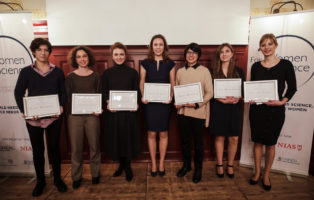Manickam, Sandra Khor
L’Oréal-UNESCO For Women in Science Fellow

Race and Genetics across Nations: the Role of Biomedical Research, the State and Society in Shaping a Contentious Relationship
Project Description
Interactions between the older idea of race and biomedical research have been studied in the United States and Europe, highlighting the use of race to improve human health as well as the dangers of discrimination based on an understanding of race as embedded in genes. Yet, genetics research is conducted in a global medical environment by scientists worldwide with different histories of race and medicine and divergent ethical concerns. This project seeks to map how the relationship between race and genetics is conceptualized in locations with dissimilar histories, states and laws. This project will map the formation of a global race and genetics discourse and its localizations in different countries to see what race means in those locations and to draw out how societies frame the potentials and ethical pitfalls of genetics research.
The project aims to develop a new understanding of the relationship between race and genetics in a global biomedical research environment. The goal of the project to map and understand this complex interaction is urgently needed as developments in the application of gene-editing technologies takes place at break-neck speeds at several different countries, with academics and politicians grappling with the meaning of these changes for the states and societies worldwide. Biomedical research and societal understandings of race are linked to worldwide ideas and technological developments, but are also embedded in histories, states and societies where research and researchers are located. The unique histories and concerns of each society where genetics research takes place give rise to priorities and ethical concerns that may diverge from those in other locations, as seen in the recent
CRISPR-baby scandal involving Chinese scientist He Jiankui. The fellowship period will be used to develop a grant proposal that aims to investigate the manifestations of unique race and genetics research histories within countries involved in international biomedical research, namely the Netherlands, Malaysia, Singapore, Israel and Australia. The project will highlight the interaction of race and genetics knowledge locally and globally with states and societies, and how these spheres influence each other in obvious but also implicit and unexpected ways.
Sandra Khor Manickam, For-Women-in-Science Fellow



